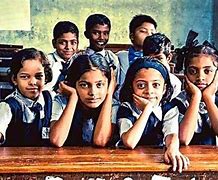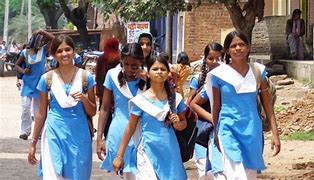Feature
Delhi HC stays government’s nursery admission guidelines
 New Delhi :Terming it as “unreasonable”, the Delhi High Court on Tuesday stayed the Arvind Kejriwal-led government’s nursery admissions notification compelling 298 private schools, built on public land, to adopt only neighbourhood criteria.The January 7 notification was “arbitrary and discriminatory”, said Justice Manmohan while ordering a stay on the guidelines for nursery admissions in the national capital for the 2017-18 academic session.The notification issued by the Department of Education of Delhi government had made “distance” the primary criterion for admission of tiny tots.
New Delhi :Terming it as “unreasonable”, the Delhi High Court on Tuesday stayed the Arvind Kejriwal-led government’s nursery admissions notification compelling 298 private schools, built on public land, to adopt only neighbourhood criteria.The January 7 notification was “arbitrary and discriminatory”, said Justice Manmohan while ordering a stay on the guidelines for nursery admissions in the national capital for the 2017-18 academic session.The notification issued by the Department of Education of Delhi government had made “distance” the primary criterion for admission of tiny tots.
The court questioned the Delhi government’s decision to impose the neighbourhood restriction to only those schools that are built on Delhi Development Authority land.”Public interest cannot be confined to 298 schools,” said the court. “After all, children are uniformly affected by alleged factors of public interest and it cannot be said that public interest is to be served only in the case of children going to 298 and not to the other 1,400-odd schools,” the court said.The notification accorded priority to students living within a radius of one km from the school concerned. In case the seats remain vacant, those living within a distance of 3 km will get the chance for admission.
There are 1,400 private unaided schools in the capital, of which 298 are built on land allotted by the DDA.The court said the notification completely takes away from the private unaided schools “the right to admit students and the right to lay down a fair, reasonable, transparent and non-exploitative procedure/criteria for admissions, leaving them with no say in their admissions whatsoever”.It also held that such notification which imposes a restriction that is absolute and prohibitory does not seem prima facie to be a ‘reasonable restriction’ on the fundamental right of these 298 schools and children to be considered for admission in a school of their choice.
Restricting admissions to immediate neighbourhood of the school “may result in restricting the growth and vision of the students”, the court opined.”This Court is of the prima facie view that there is potential of abuse of the definition of ‘neighbourhood’ as many rich parents would either shift to areas which are close to the school that they want their children to study or would get sham rent receipts/documents from owners or relatives and friends to show that they reside in such areas when they do not. There is no mechanism stipulated in the impugned notification to curb or examine the allegation of abuse,” the court said.
The court also remarked that “primary cause of nursery admissions chaos is lack of good schools in Delhi”.It also said that there was lack of good quality government schools in Delhi because of which the neighbourhood criteria cannot be properly implemented.The court’s judgement came on petitions filed by two school bodies — the Action Committee of Unaided Recognised Private Schools and Forum for Promotion of Quality Education along with a few parents to challenge the guidelines.Earlier, the high court stayed the government’s nursery admission notification that made it mandatory for private unaided minority schools to admit students, in the unreserved category, on the basis of neighbourhood criteria.
Entertainment
Meghalaya Reserves Legalized Gambling and Sports Betting for Tourists

The State Scores Extra High on Gaming-Friendly Industry Index
Meghalaya scored 92.85 out of 100 possible points in a Gaming Industry Index and proved to be India’s most gaming-friendly state following its recent profound legislation changes over the field allowing land-based and online gaming, including games of chance, under a licensing regime.
The index by the UK India Business Council (UKIBC) uses a scale of 0 to 100 to measure the level of legalisation on gambling and betting achieved by a state based on the scores over a set of seven different games – lottery, horse racing, betting on sports, poker, rummy, casino and fantasy sports
Starting from February last year, Meghalaya became the third state in India’s northeast to legalise gambling and betting after Sikkim and Nagaland. After consultations with the UKIBC, the state proceeded with the adoption of the Meghalaya Regulation of Gaming Act, 2021 and the nullification of the Meghalaya Prevention of Gambling Act, 1970. Subsequently in December, the Meghalaya Regulation of Gaming Rules, 2021 were notified and came into force.
All for the Tourists
The move to legalise and license various forms of offline and online betting and gambling in Meghalaya is aimed at boosting tourism and creating jobs, and altogether raising taxation revenues for the northeastern state. At the same time, the opportunities to bet and gamble legally will be reserved only for tourists and visitors.
“We came out with a Gaming Act and subsequently framed the Regulation of Gaming Rules, 2021. The government will accordingly issue licenses to operate games of skill and chance, both online and offline,” said James P. K. Sangma, Meghalaya State Law and Taxation Minister speaking in the capital city of Shillong. “But the legalized gambling and gaming will only be for tourists and not residents of Meghalaya,” he continued.
To be allowed to play, tourists and people visiting the state for work or business purposes will have to prove their non-resident status by presenting appropriate documents, in a process similar to a bank KYC (Know Your Customer) procedure.
Meghalaya Reaches Out to a Vast Market
With 140 millions of people in India estimated to bet regularly on sports, and a total of 370 million desi bettors around prominent sporting events, as per data from one of the latest reports by Esse N Videri, Meghalaya is set to reach out and take a piece of a vast market.
Estimates on the financial value of India’s sports betting market, combined across all types of offline channels and online sports and cricket predictions and betting platforms, speak about amounts between $130 and $150 billion (roughly between ₹9.7 and ₹11.5 lakh crore).
Andhra Pradesh, Telangana and Delhi are shown to deliver the highest number of bettors and Meghalaya can count on substantial tourists flow from their betting circles. The sports betting communities of Karnataka, Maharashtra, Uttar Pradesh and Haryana are also not to be underestimated.
Among the sports, cricket is most popular, registering 68 percent of the total bet count analyzed by Esse N Videri. Football takes second position with 11 percent of the bets, followed by betting on FIFA at 7 percent and on eCricket at 5 percent. The last position in the Top 5 of popular sports for betting in India is taken by tennis with 3 percent of the bet count.
Local Citizens will Still have Their Teer Betting
Meghalaya residents will still be permitted to participate in teer betting over arrow-shooting results. Teer is a traditional method of gambling, somewhat similar to a lottery draw, and held under the rules of the Meghalaya Regulation of the Game of Arrow Shooting and the Sale of Teer Tickets Act, 2018.
Teer includes bettors wagering on the number of arrows that reach the target which is placed about 50 meters away from a team of 20 archers positioned in a semicircle.
The archers shoot volleys of arrows at the target for ten minutes, and players place their bets choosing a number between 0 and 99 trying to guess the last two digits of the number of arrows that successfully pierce the target.
If, for example, the number of hits is 256, anyone who has bet on 56 wins an amount eight times bigger than their wager.























